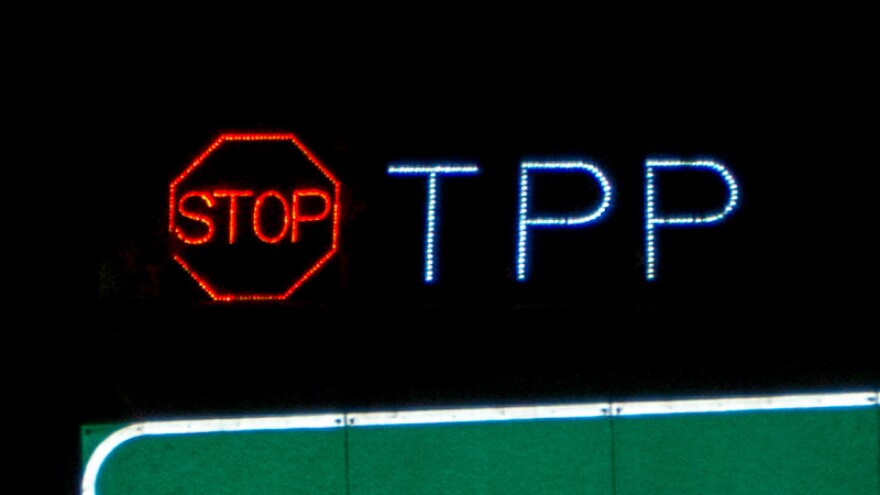As negotiations over the TPP are continuing, it’s generating some unusual political alliances. Lake Effect essayist Avi Lank surprised himself a little when he considered the trade deal’s merits:
For a person like me, who believes that appropriately regulated capitalism is the most efficient way to produce wealth, the Trans-Pacific Partnership poses a dilemma. The concept is laudable -- trade enriches nations and societies. But changing trade patterns creates losers, so for any trade policy to be good for society as a whole, it has to go beyond just regulating the flow of goods and services. Thus the dilemma. Some background. The TPP, as it is called, is a complex agreement on trade being negotiated among a dozen nations on the Pacific Rim, including the US, Japan, Canada and Australia, but with the notable exception of China.
The years-long negotiations have been conducted in private, which, as much as it pains my journalistically inclined heart to say so, is probably the only way such a deal can be worked out. Congress is now considering whether it will agree to vote the finished agreement up or down as a whole, without the ability to amend it. Again, this so-called Fast Track authority is something that, like secrecy, is regrettable, but also probably necessary to reach an agreement. With both President Obama and most Republicans supporting Fast Track, odds of its passage are good.
Obama argues that in addition to helping US business compete better in the countries that are part of the TPP, the agreement will blunt China’s effort to exert power in the region, or perhaps even force it to agree to the TPP framework as a way to conduct its trade. Some details of what being negotiated have leaked, and it is apparent that the TPP will regulate more than it will totally free trade among the signatories. Organized labor is apoplectic about the TPP, looking to the experience of the last major US trade deal, NAFTA, which eliminated many barriers between the US, Mexico and Canada. NAFTA coincided with the massive deindustrialization of the US.
Whether there was a direct cause and effect between the two is not completely clear, but it is reasonable to argue that NAFTA accelerated US deindustrialization. That globalization, and US deindustrialization, will continue in any event should be remembered when analyzing whether to support the TPP. Trying to blunt a well-run business’s maximization of profit is like trying to stop people who benefit by government policies from contributing ever-larger amounts of cash to influence elections – both are such powerful forces that the best one can hope for is merely to regulate them. That is a powerful argument for supporting agreements such as the TPP.
Another is that for an economy as a whole, trade, whether free or regulated, delivers more material goods and, probably, greater human happiness, than building trade barriers. But changes in trade patterns create losers. Small Mexican corn farmers lost out to mega-producers in Iowa after NAFTA and the agreement made it easier to move Milwaukee factory jobs to Mexico. So how do we address this dilemma? How do we find a synthesis between the societal booms of something like the TPP and its undoubted individual banes?
As part of the bill granting Fast Track authority for TPP, Congress should include a series of other changes that would become law if the pact is approved. These should include taxing some of the gains that come to companies and individuals because of the TPP and using the proceeds for social welfare programs to mitigate the losses it brings to others. Such a balance would make the TPP a truly good, supportable, piece of public policy, enriching us all, not just a select few.
Avi Lank was an award-winning reporter and columnist at the Milwaukee Sentinel and Journal Sentinel for more than 35 years. He’s co-author of the forthcoming book, The Man Who Painted the Universe, coming out in June. He lives in in Whitefish Bay.





